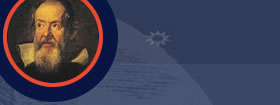

Fortunio Liceti was born in Rapallo in 1577 and studied philosophy and medicine in Bologna. From 1600 to 1609 he was a lecturer, first in logic and then in philosophy, at Pisa, and in 1609 was assigned a post at the University of Padua, where he remained until his death, except for a brief period at the University of Bologna from 1636 to 1645. Liceti studied natural philosophy and medicine, and his writings attest to the multiplicity of his interests. Among these we recall his De monstruorum causis, natura et differentiis (Padua, 1616), in which he dealt with the issue of genetic anomalies, and his De spontaneo viventium ortu (Vicenza, 1618), in which he affirmed the spontaneous generation of living beings. In his Litheosphorus, sive de lapide Bononiensi (Udine, 1640) he contested the idea that the feeble light of the waning moon was due to the reflection of the sun's rays on the earth's surface, maintaining that the cause was to be sought in the sun's illumination of the area surrounding the lunar mass. Liceti stated that, like the phosphorescent "Lucifer stone of Bologna," the moon had the property of retaining light. Galileo, though ill and close to death, at the urging Prince Leopoldo de' Medici (1617-1675), wrote a letter reaffirming the validity of his opinions.
Although the debate between the two remained within the bounds of courtesy, Galileo's friends and associates generally expressed unflattering views of Liceti in their letters. Fortunio Liceti died in Padua in 1657.